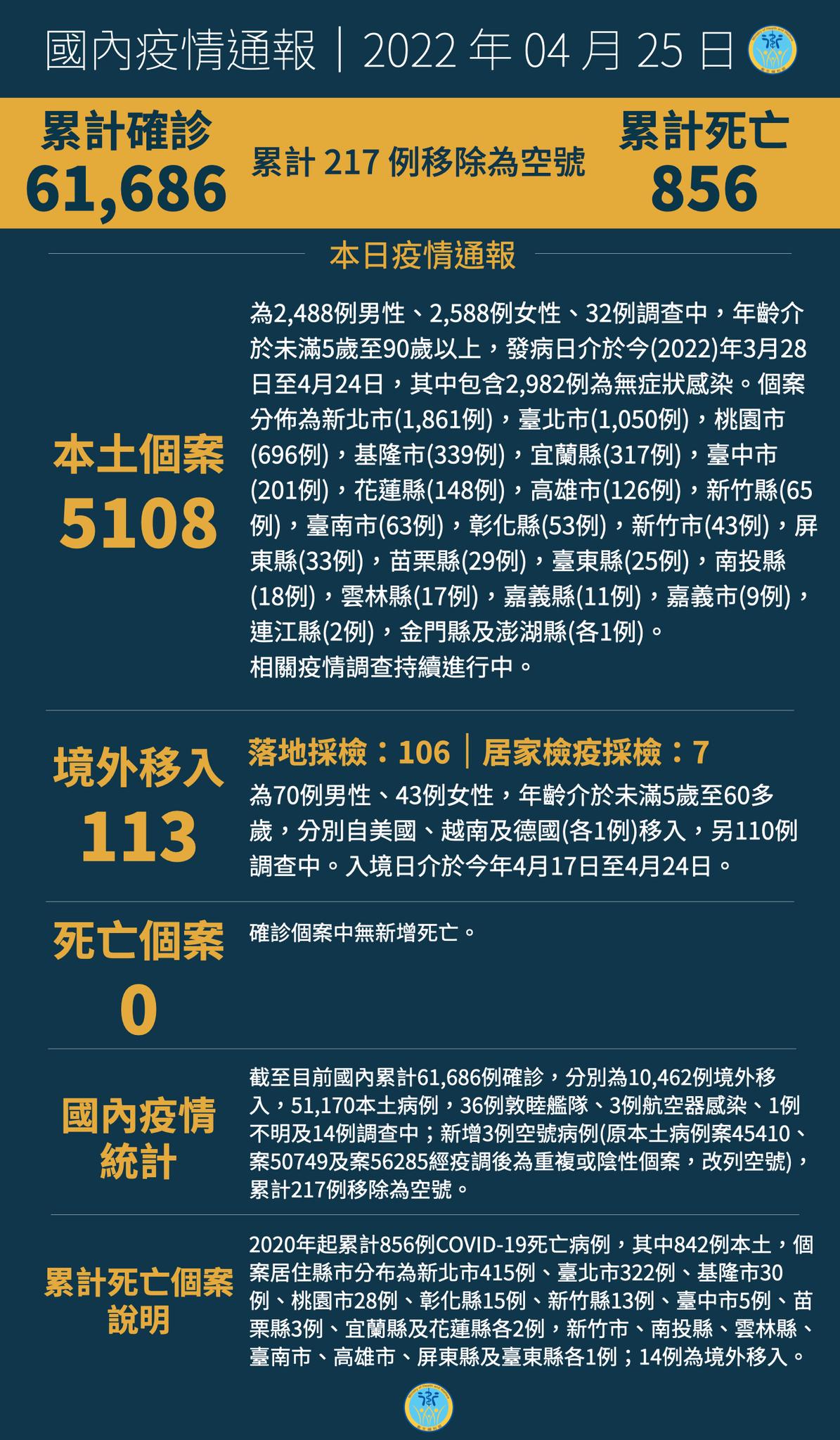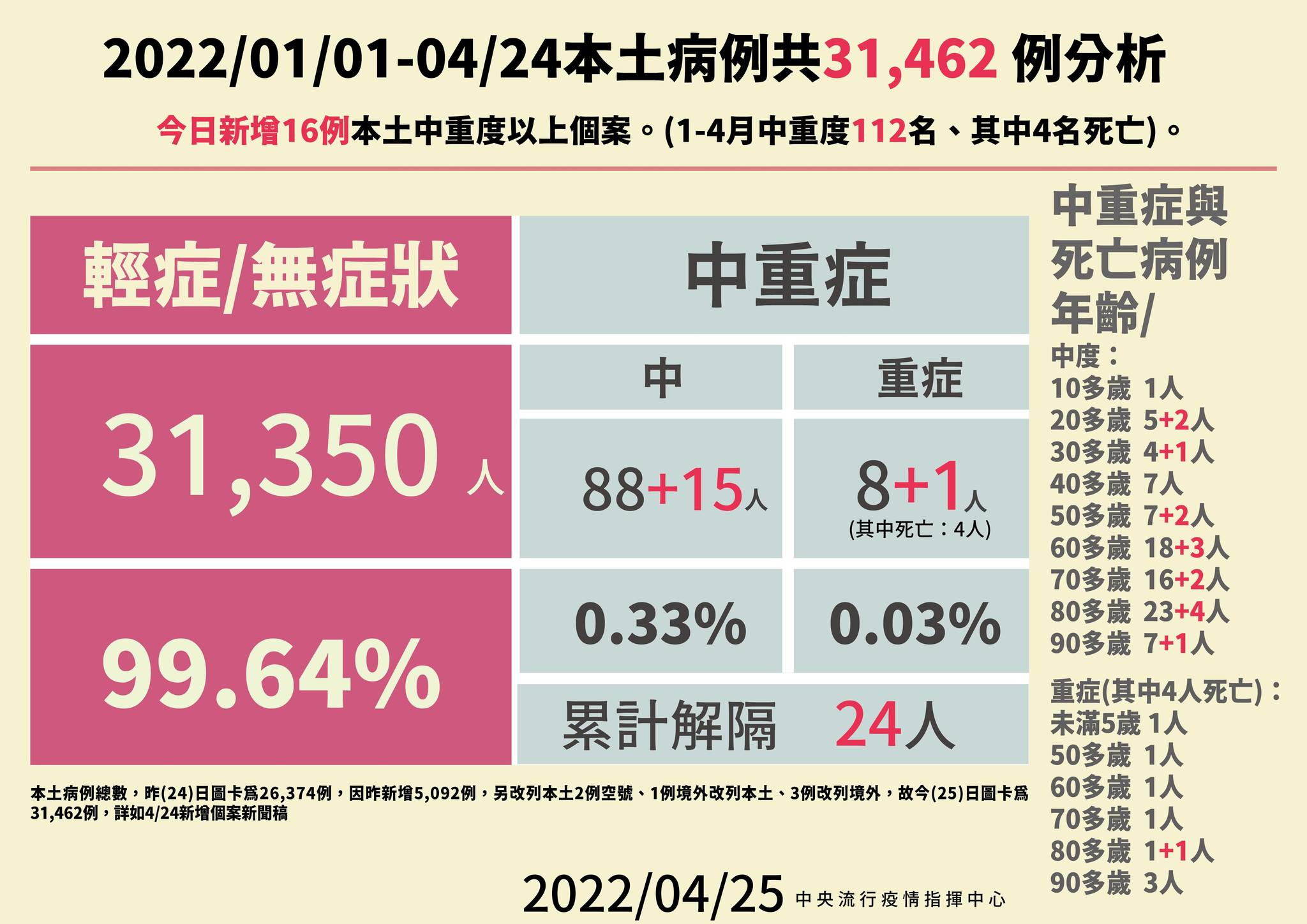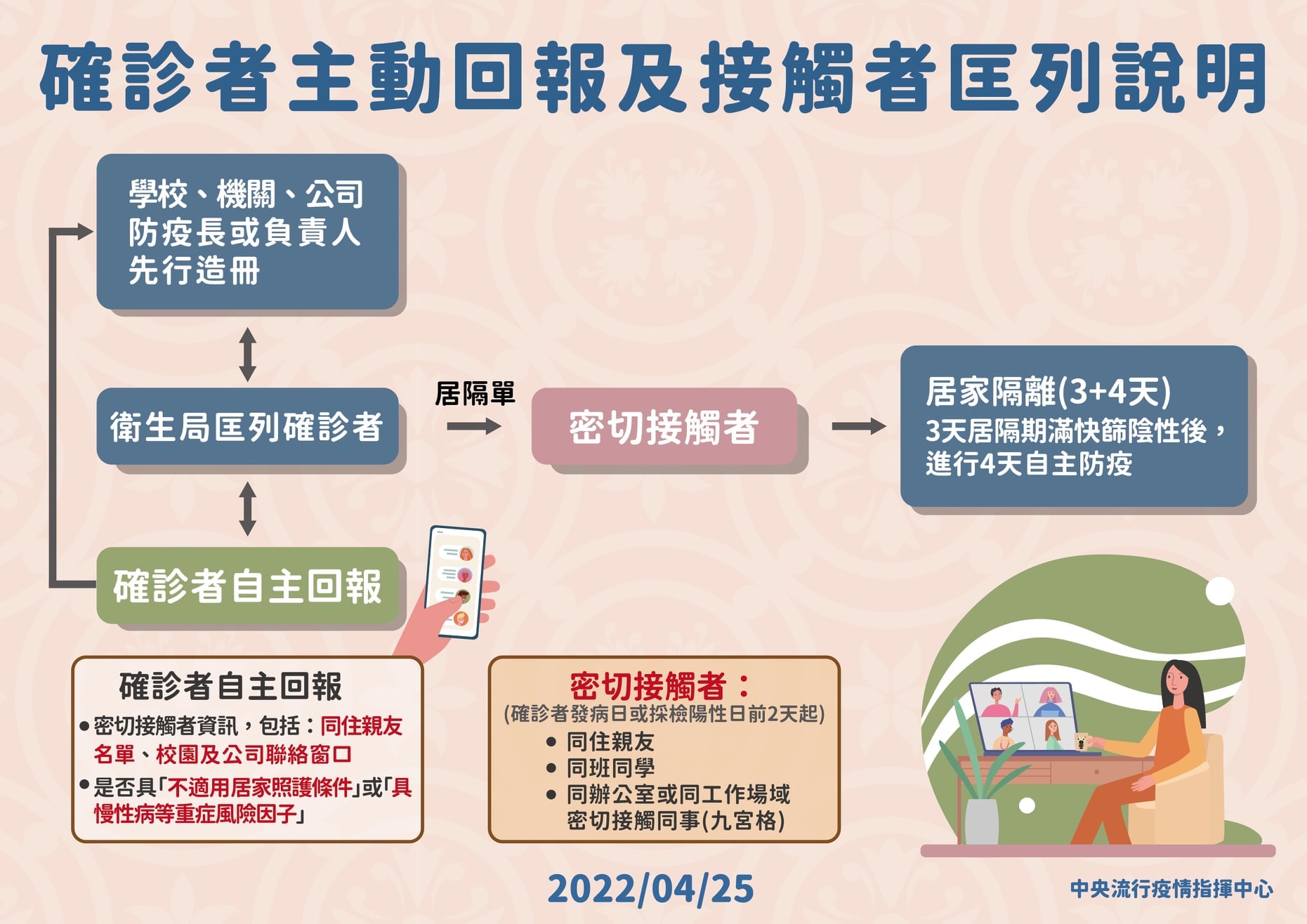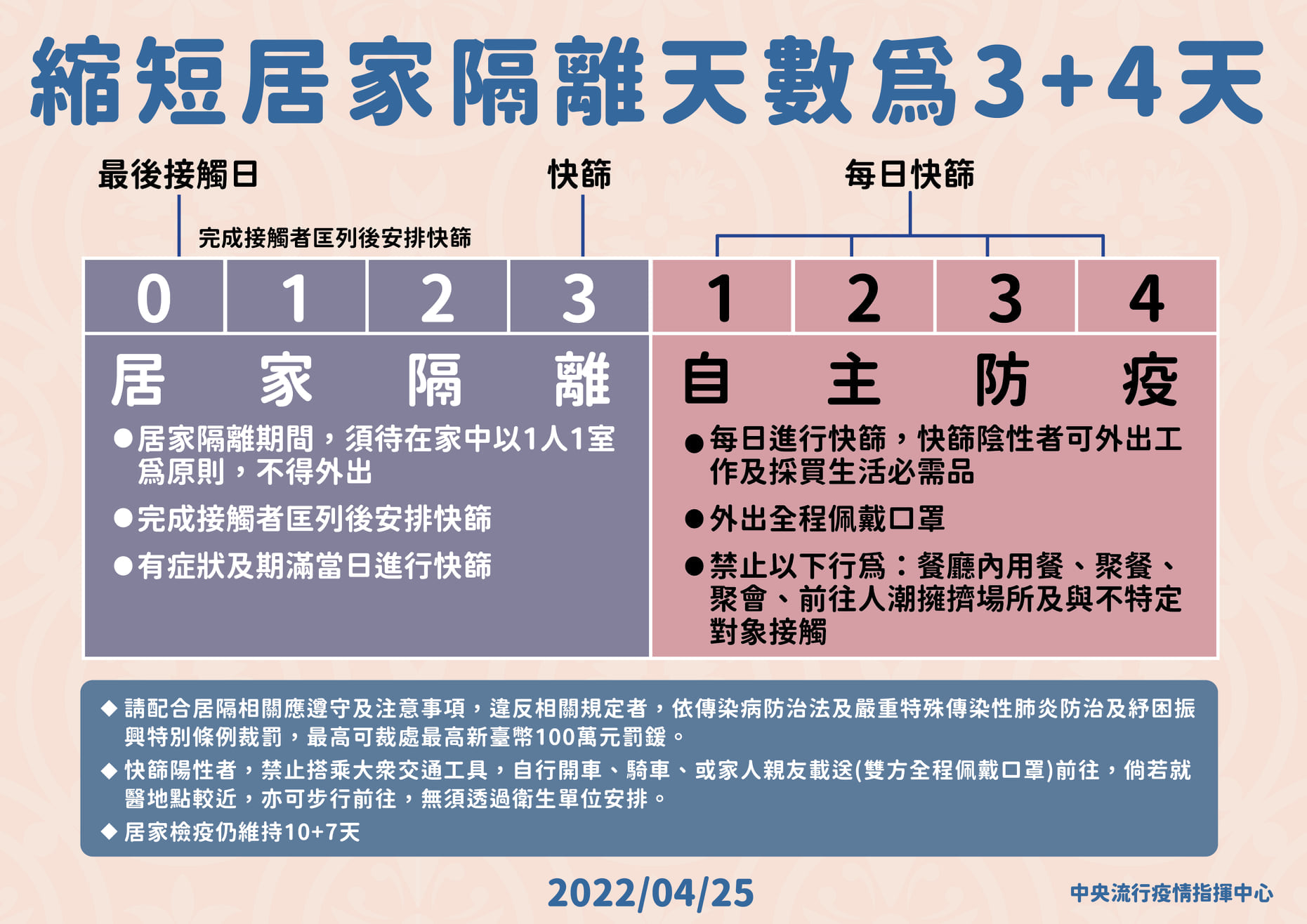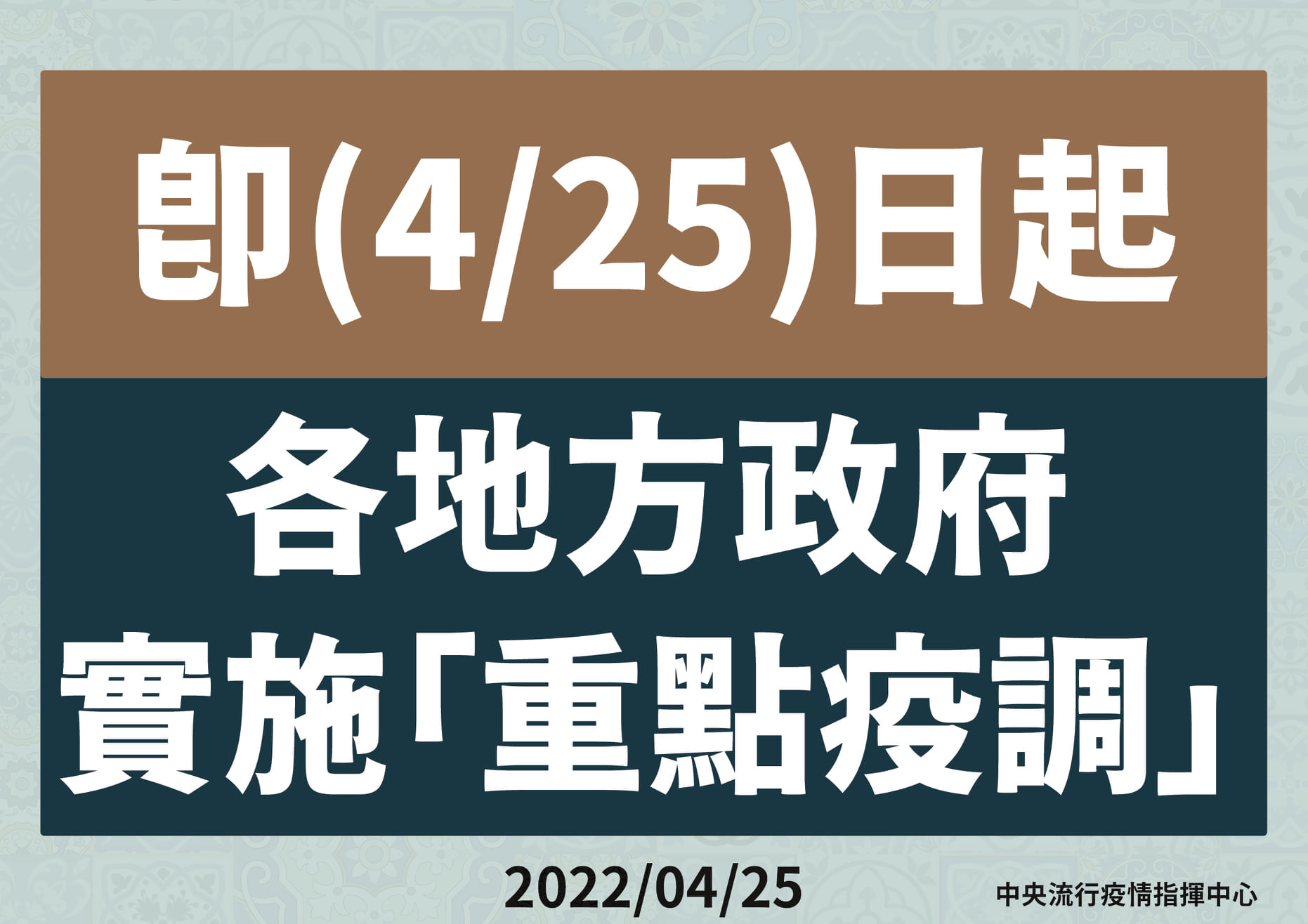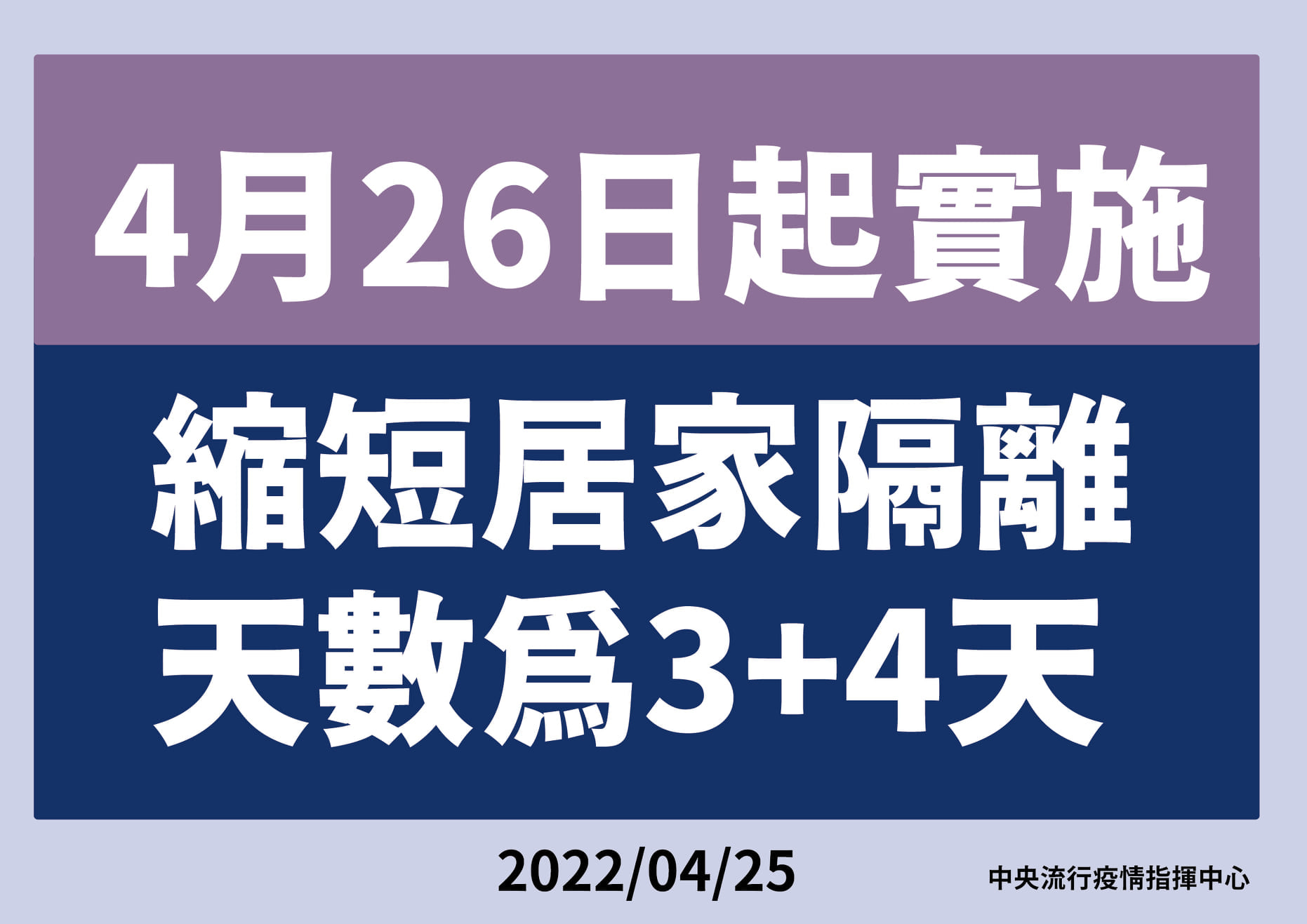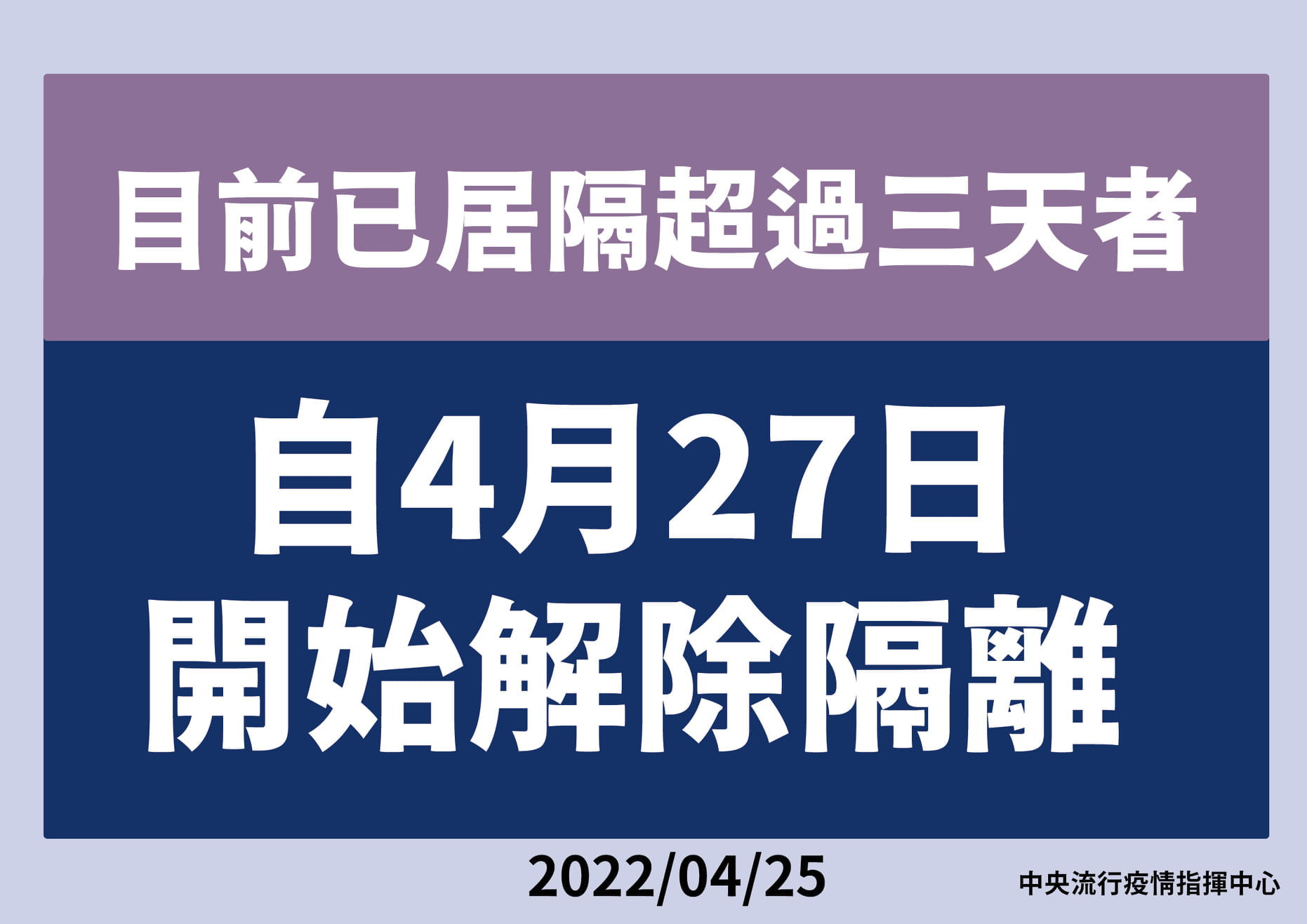by Brian Hioe
語言:
English
Photo Credit: 玄史生/WikiCommons/CC
5,108 CONFIRMED CASES, 113 imported cases, and zero deaths were reported by the Central Epidemic Command Center (CECC) at its daily COVID-19 press conference today. 106 of the imported cases were found on arrival, while seven were found while in quarantine. The CECC is the government body that coordinates Taiwan’s COVID-19 response under the auspices of the Ministry of Health and Welfare.
This is the second consecutive day that Taiwan has seen more than 5,000 domestic cases and it is possible that fewer testing took place over the weekend. 15 cases of medium severity were added, while one serious case was added. 99.64% of cases this year have light symptoms or are asymptomatic, though the CECC acknowledged that such statistics may have a time lag due to changes in the status of various cases.
A major policy announcement was made today shortening the mandatory quarantine period from ten days to three days of mandatory quarantine, followed by four days of self-health management.
Infographic on the cases from today and on the current number of light, medium, and severe cases from today. Photo credit: Ministry of Health and Welfare/Facebook
This announcement was anticipated ahead of time, following a meeting between the CECC and local mayors this morning, and a meeting with a panel of experts in the afternoon. As a result, the time of the press conference was delayed to 6 PM from its usual time of 2 PM, as well as from a previously announced start time of 4:30 PM.
For individuals to be released from quarantine after three days, they will need to test negative for COVID-19 on a rapid test. Individuals are asked to refrain from going to crowded areas but to primarily limit themselves to purchasing what they need after self-health management. To go out during the self-health management period requires a negative rapid test. Each individual requires five rapid tests for their quarantine period. Individuals will not need to test if they have no plans to go outside during the self-health management period.
Negative tests do not need to be reported to the government, but positive tests will be. Positive tests will require individuals to come up with lists of contacts and work with institutions such as workplaces to draw up lists of contacts, in coordination with local health authorities, so as to come up with lists of who needs to register for quarantines. In this way, the new policy will be dependent on voluntary compliance rather than forced quarantines, as well as regarding listing of contacts or individuals pretending that they do not have positive tests. Testing continues at testing stations, so individuals can confirm the results of rapid tests there if needed.
The new policy primarily applies to contacts of COVID-19 cases, seeing as while individuals with light symptoms or who are asymptomatic can quarantine at home currently, they would not test negative after three days of quarantine. It is hoped that three days of quarantine will make it easier to prepare for quarantine, in such cases. The start of quarantine reductions will take place starting tomorrow and will apply retroactively, though those currently in quarantine may require an extra day of quarantine due to the need to compensate for administrative procedures. Those in quarantine should be out by April 27th.
Individuals entering Taiwan will not have their quarantine periods reduced from the current ten days. This is to prevent the possibility of new COVID-19 variants entering Taiwan, as well as new transmission chains.
Infographics on the shifts in testing policy. Photo credit: Ministry of Health and Welfare/Facebook
The current contact tracing policy will also be simplified, in light of the growth in cases. Contact tracing originally began from the onset of symptoms or confirmed diagnosis, but this is now limited to two days. This reduces the number of contacts that need to be traced by half. As a matter of principle, there will be no more reporting of the travel history of confirmed cases, though this will take place at the discretion of authorities. Yet contact tracing will still take place to mitigate the spread of COVID-19.
Sewage testing continues to take place to find areas with COVID-19 cases.
Taipei mayor Ko Wen-je currently claims that there will be 4,000,000 cases by the end of the year, 160,000 medium to serious cases, and 40,000 deaths by the end of the year. It is possible that this will become a recurring argument from mayors of the pan-Blue camp in order to criticize the CECC.
20,000 or so vaccinations took place yesterday. First dose coverage in Taiwan is currently at 84.51%, second dose coverage is at 79.78%, and booster shot coverage is at 57.84%. 81.64% of those that register for vaccinations arrive at their appointments.
The CECC eventually hopes to replace the current QR code contact registration system with the social distancing app that detects if individuals have come in close contact with a COVID-19 case. The CECC will announce when the QR code contact registration system will be phased out.


